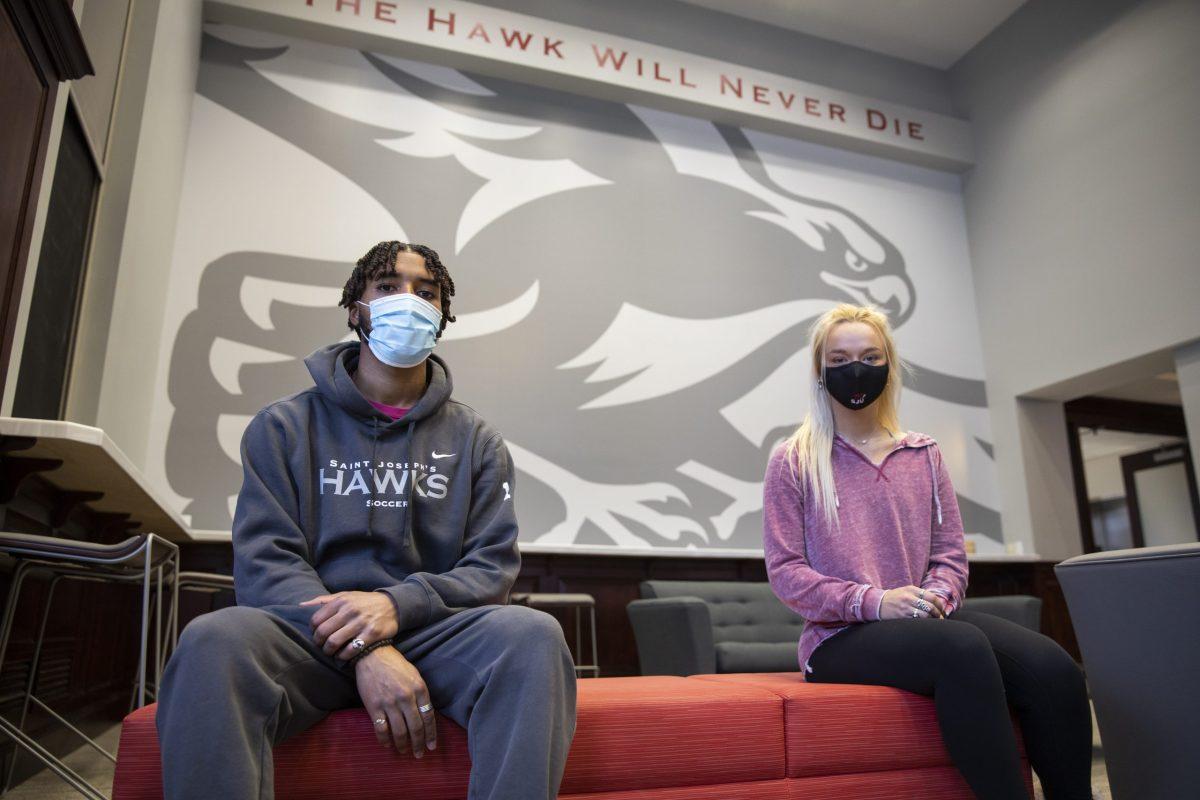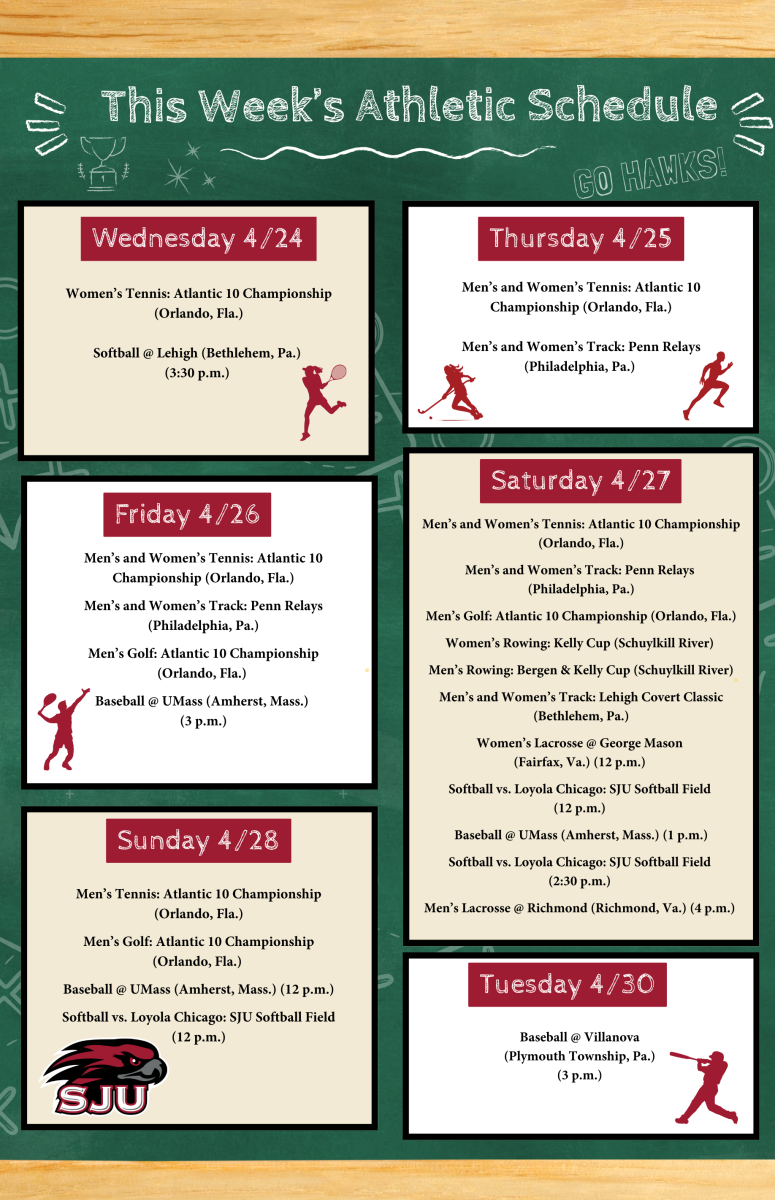In a year in which sports teams have seen seasons shortened, games canceled and their sense of comfort in their sport upheaved, 19 St. Joe’s student athletes met on Zoom for the first meeting of Hawks Minded, a student athlete run mental health club.
The purpose of the club is to have authentic conversations about the difficulties student athletes face, including not having family present at competitions, connecting with younger teammates given limited social interaction and their overall mental health challenges.
The club’s co-presidents are Alex Hood, a redshirt freshman midfielder for the men’s soccer team, and Briana Baier, a junior who competes in the pentathlon and heptathlon for the women’s track and field team.
Student athletes have to cope with the high pressure environment of college athletics, as well as other mental stressors, including difficult classes and adhering to the expectations of a stereotypical student athlete. Hawks Minded aims to destigmatize mental health issues and provide a space for student athletes to reach out for help.
“A lot of the time, you see student athletes for what they do as bodies of work or the goals that they accomplish or maybe the records they set, and you don’t really think about the person behind all that effort,” Hood said. “Hawks Minded tries to take a step back from that and see the person who’s doing all that work.”
Mental toughness is an often emphasized cliche in athletics. While there are moments in which it is necessary for student athletes to be mentally tough, it is also important to be emotionally vulnerable and not dismiss mental health struggles, according to Baier.
“It’s okay to be overwhelmed,” Baier said. “It’s okay for there to be not a physical ache and pain, but a mental ache and pain causing my game to be off.”
According to Eric Laudano, D.A.T., senior associate athletics director for high performance, the club was created with the intent to destigmatize mental health challenges among student athletes by providing a forum for them to be vulnerable about the difficulties they experience.
“Hawks Minded has provided a peer platform for our student athletes to create a space to open dialogue breakdown stigmas around mental health, and provide support for the varied stressors student athletes may experience,” Laudano wrote in an email to The Hawk.
Many of the mental health challenges that student athletes face are intensified from the pressure of having to live up to high expectations day after day, both on and off the field, Hood said.
“Coaches want the best results all the time, but because they’re such determined competitors, it can be hard for them to take into account what might be happening to you outside of practices and games,” Hood said.
According to Baier, when student athletes don’t meet their personal goals or ones set by coaches and teammates, they are susceptible to feelings of guilt and shame.
“It feels like you’re letting down your team or you’re letting down yourself,” Baier said. “You get this idea in your head that it’s my fault that I’m not producing. It becomes this vicious cycle of growing frustration.”
Baier added that the rigorous demands of a student athlete’s lifestyle can make it difficult to compartmentalize training and schoolwork.
“It can be exhausting to sit in class and try to retain information without letting your mind wander to whatever training and competition you have next,” Baier said.
Mental health challenges for student athletes have been amplified by the coronavirus pandemic, according to Hood. He said it’s sometimes difficult to give maximum effort knowing that upcoming practices or games are not guaranteed.
“There’s so many voices in the back of your mind that want to sow that doubt into your mind,” Hood said.
Baier said that the pandemic has increased feelings of loneliness among student athletes. To compensate, the women’s track and field team emphasizes togetherness and open communication to cultivate a sense of community.
“My biggest sense of normalcy is when I get to be around my team and train with my team,” Baier said. “In my team, there’s been an effort to let each other know that we’re all going to get through this together.”
Hawks Minded hopes to connect student athletes facing similar mental stressors, whether they’re related to performance, academics, injuries or COVID-19, Baier said.
While student athletes have fewer opportunities to relax than most, Hawks Minded will give them the chance to prioritize their mental health and take a non-COVID-19 related pause.
“It’s easy for student athletes to get caught up in the hectic day-to-day life of being both a student and a representative of school,” Hood said. “Hawks Minded is a space for different individuals to meet, take a deep breath, and come back to center.”











































